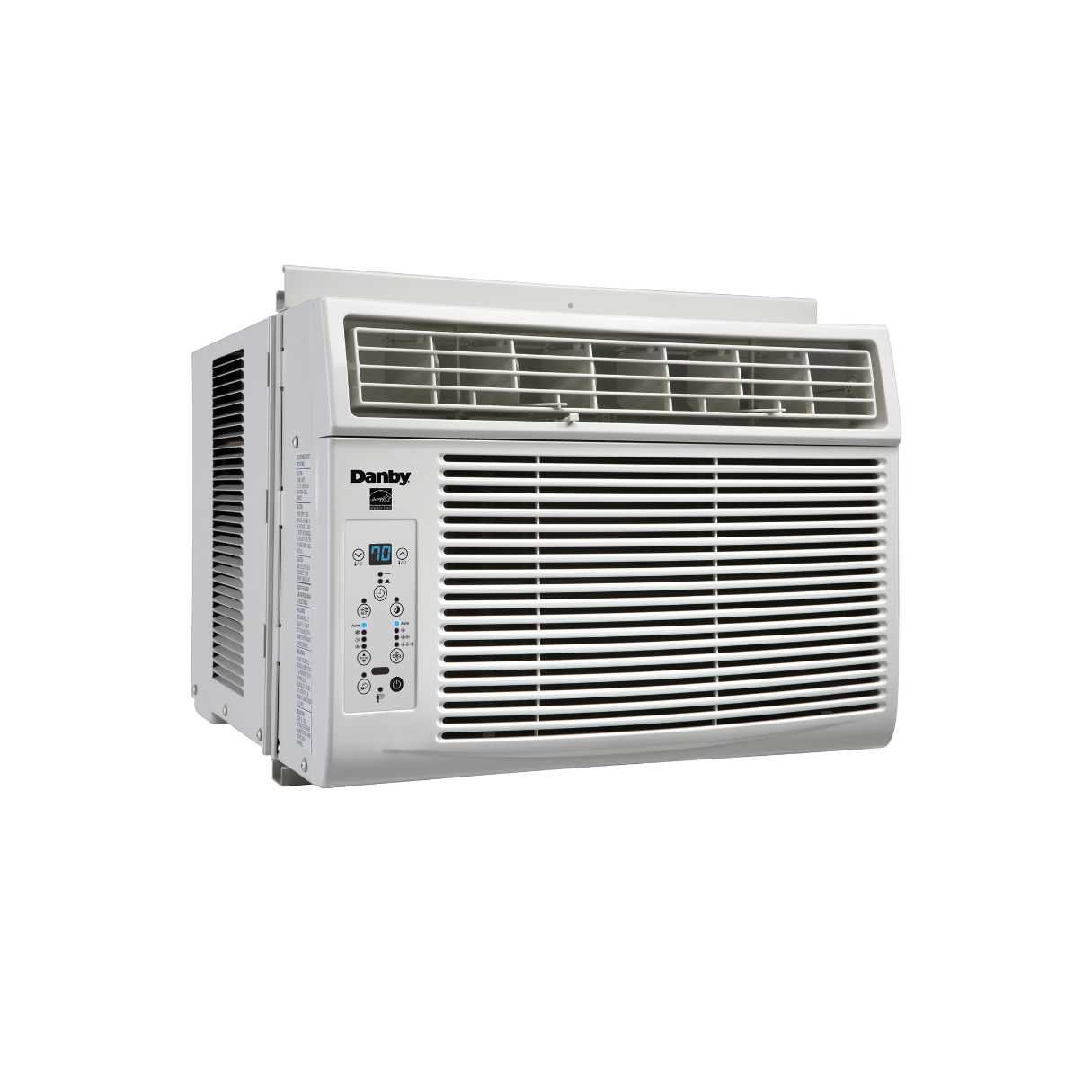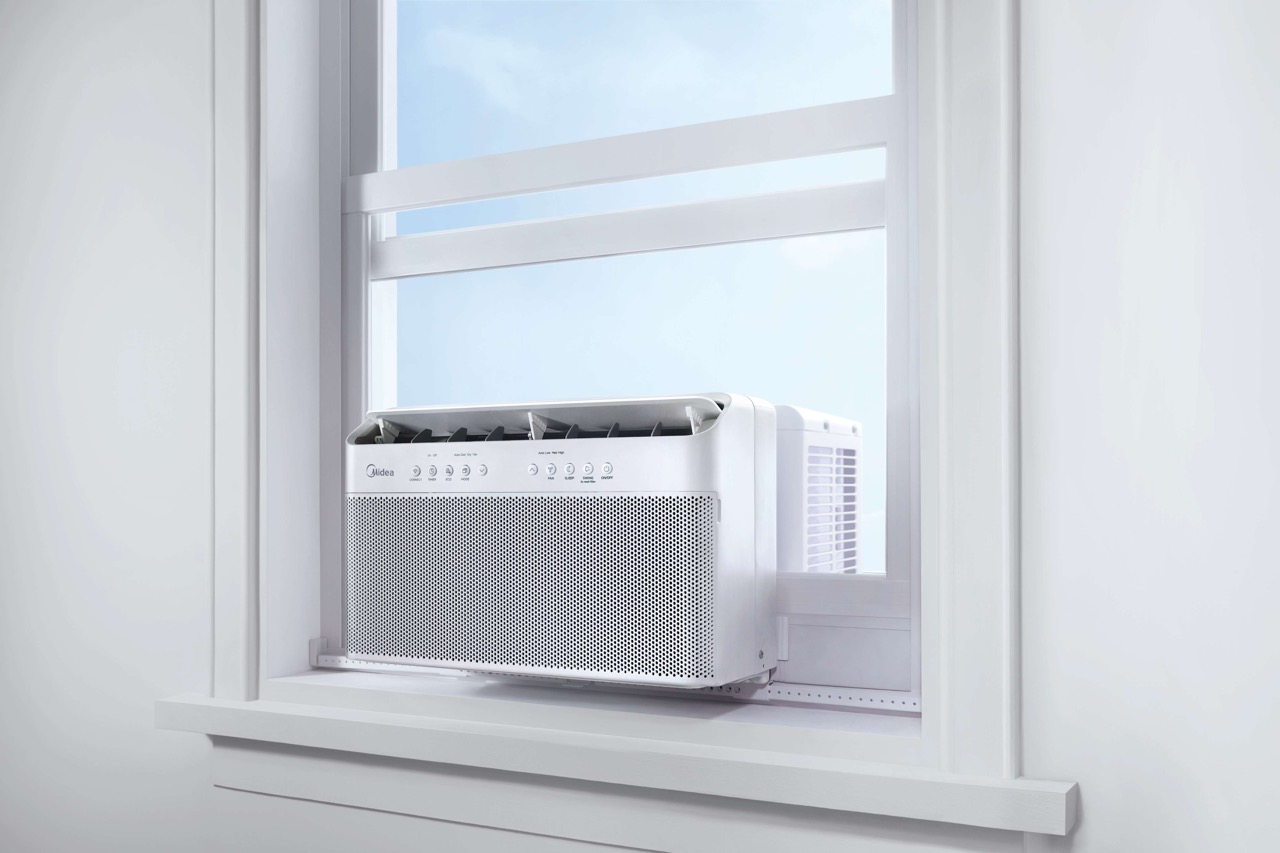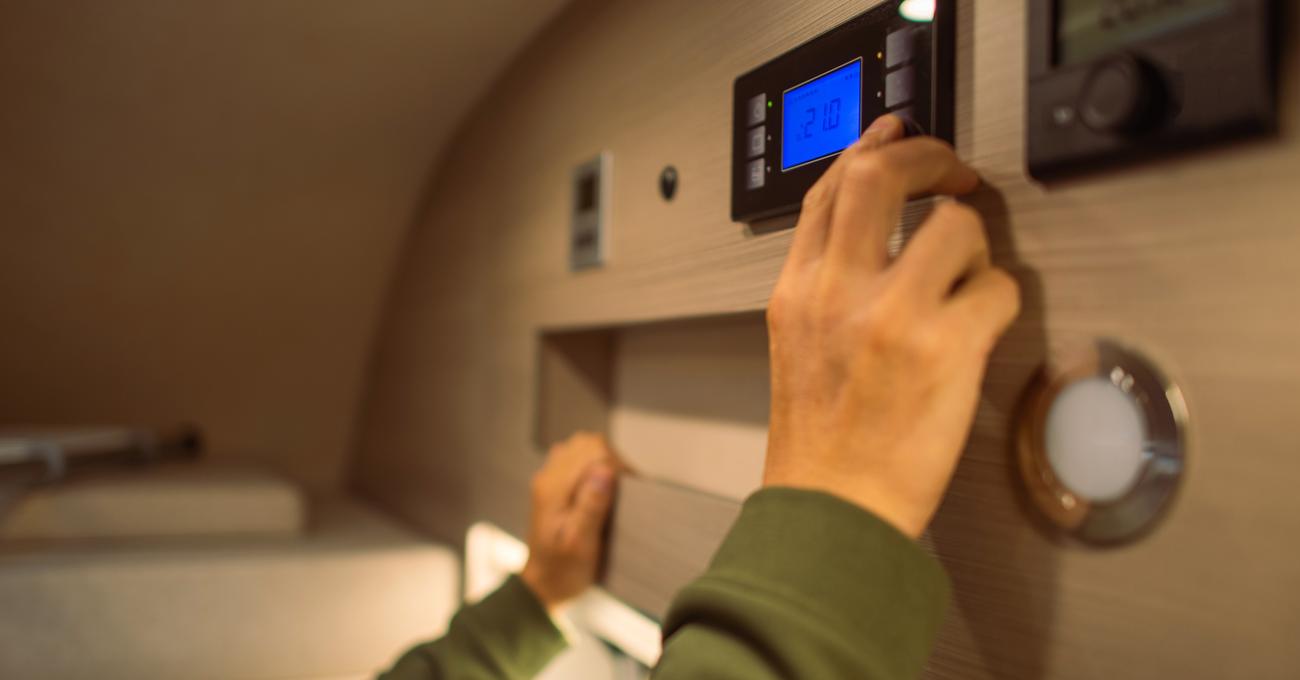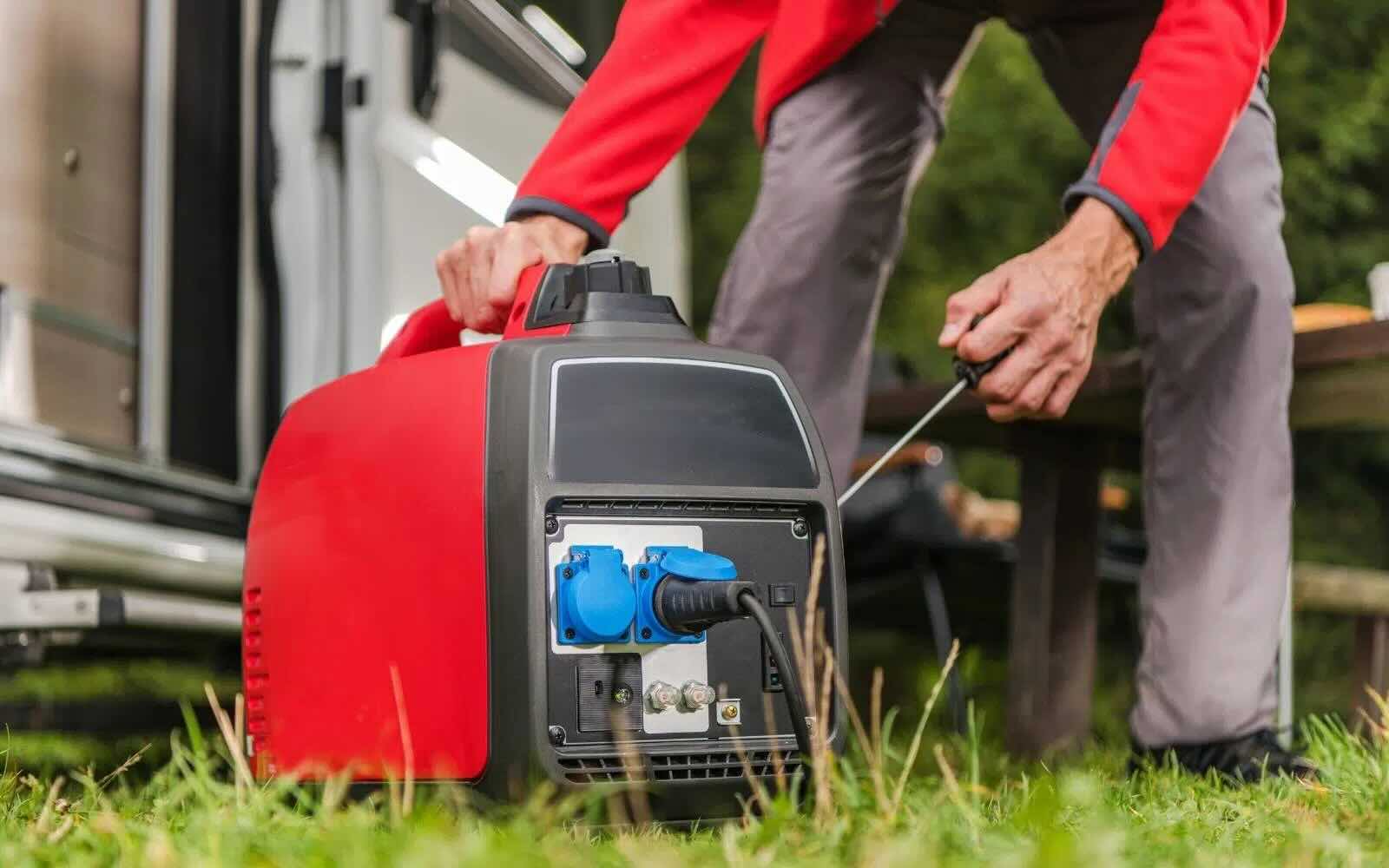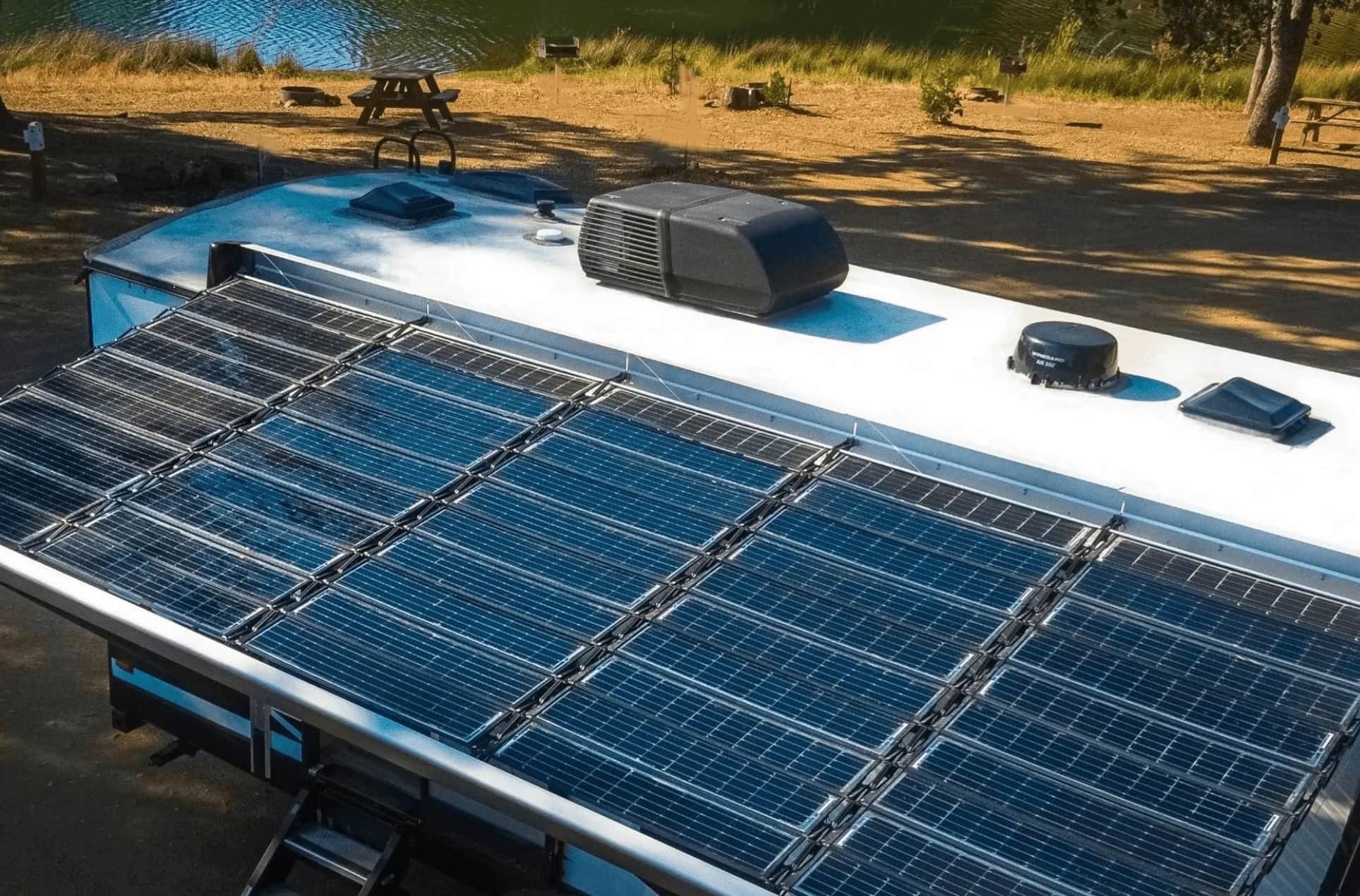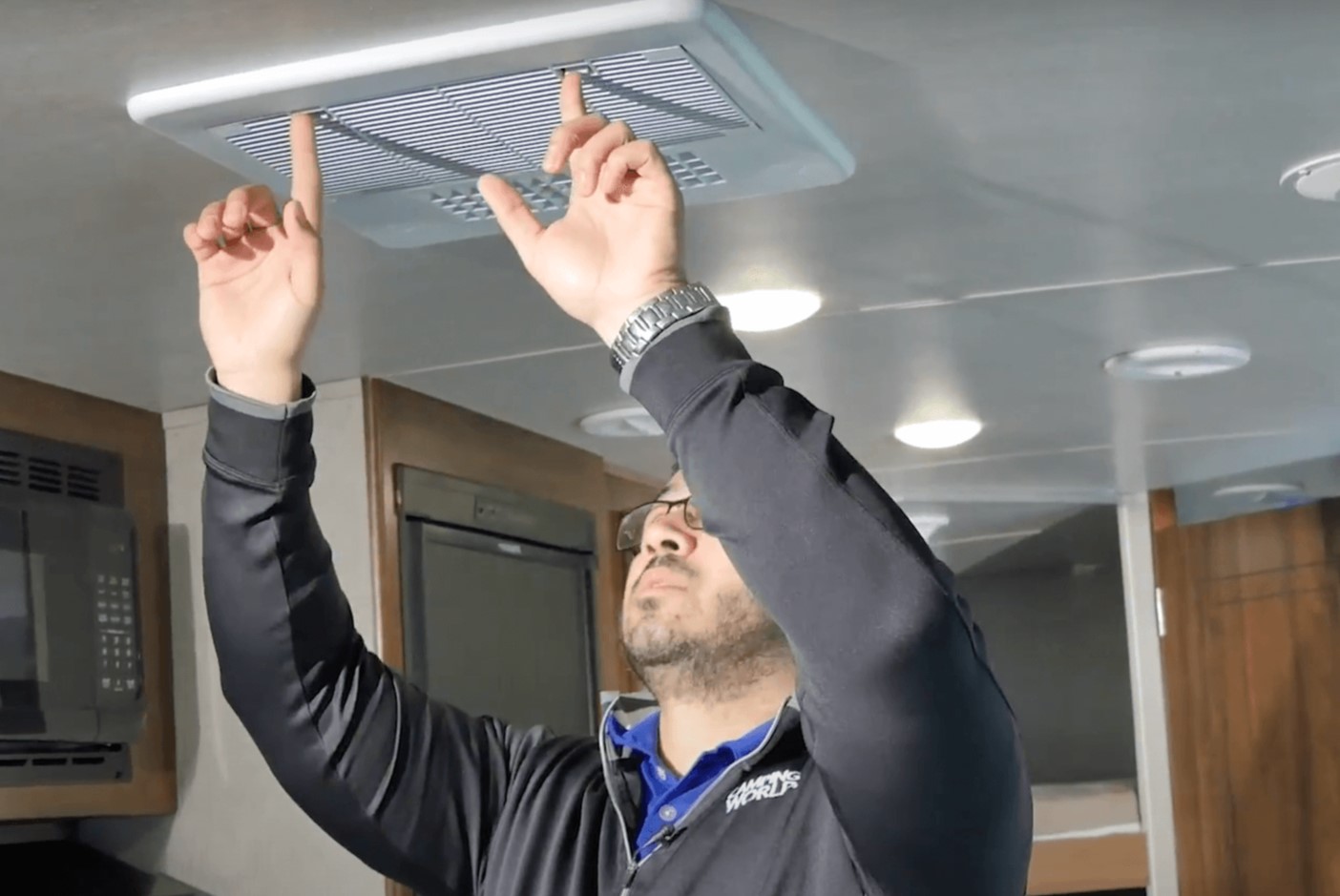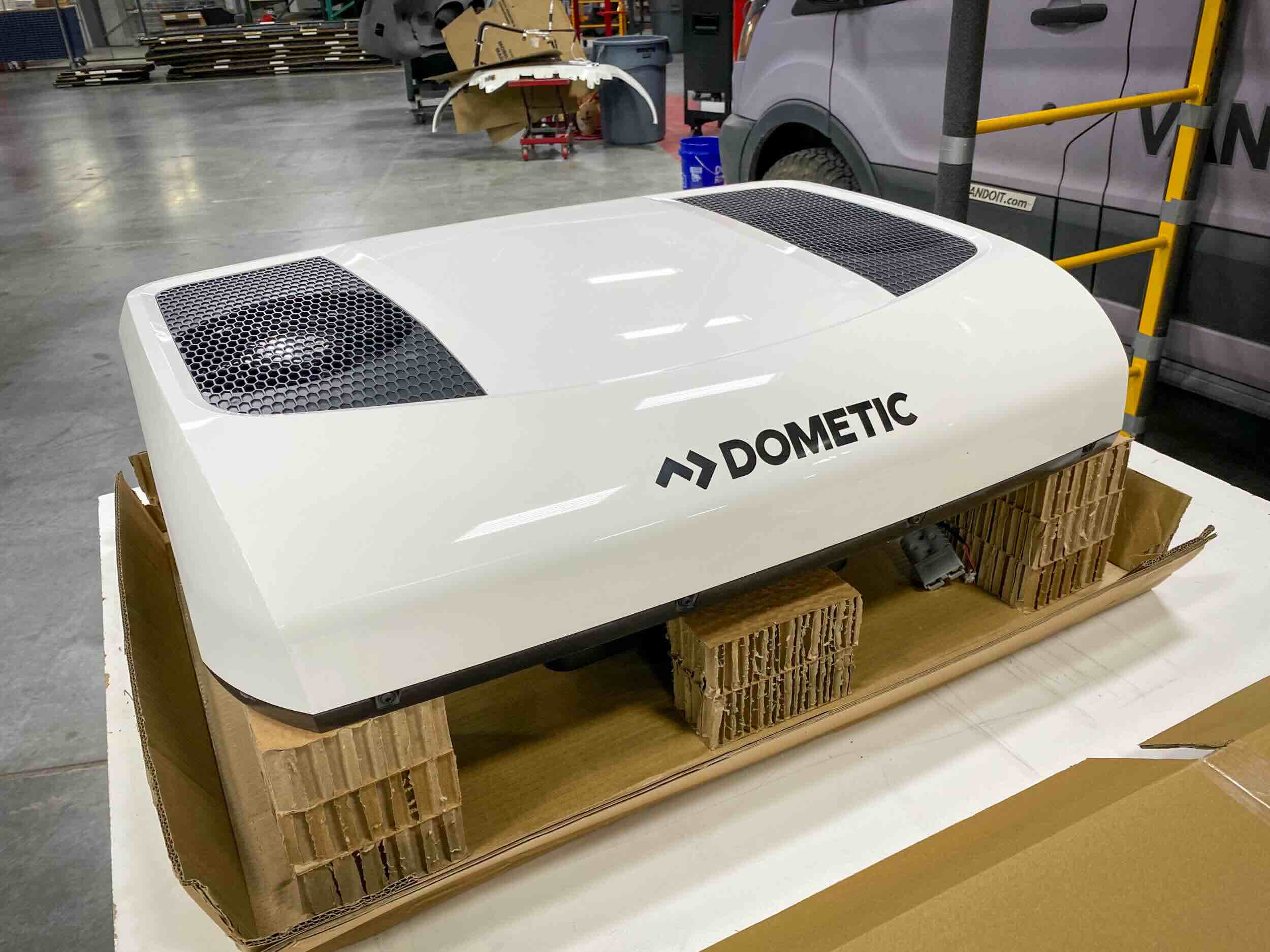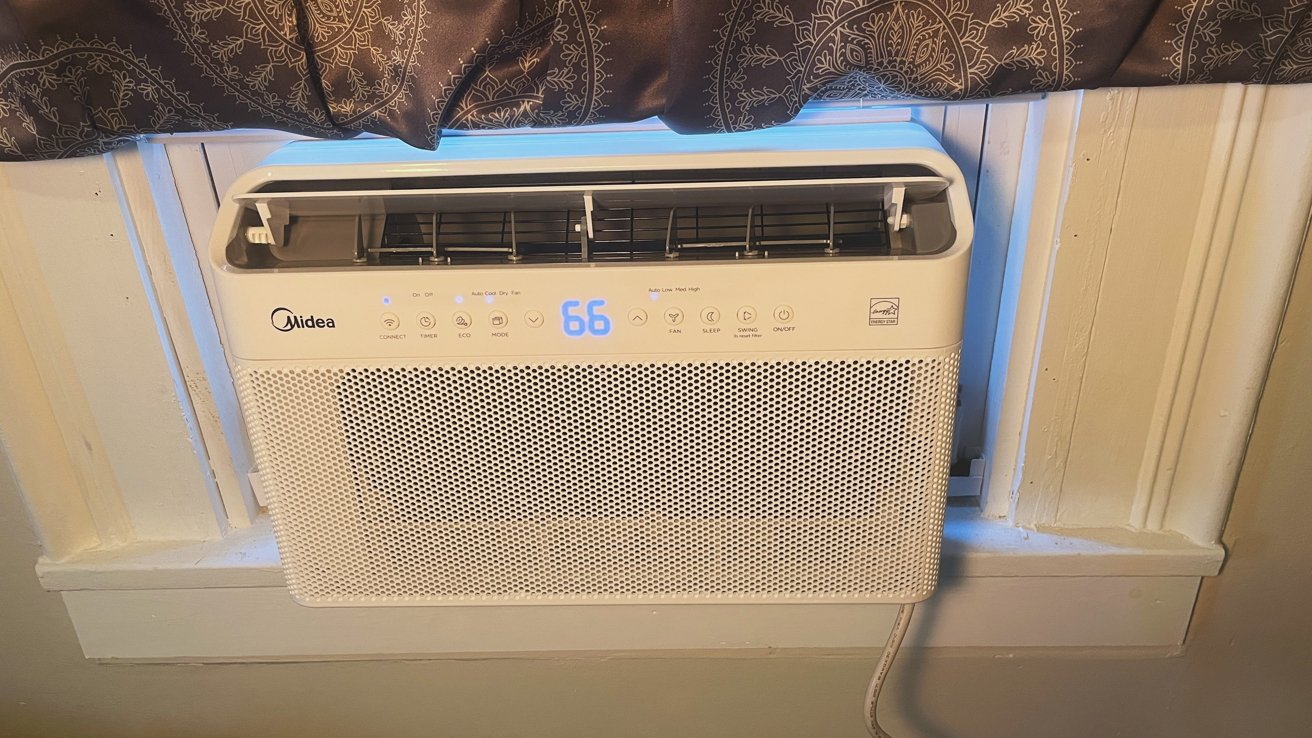Home>Home Maintenance>How Many Watts Does An RV Air Conditioner Need
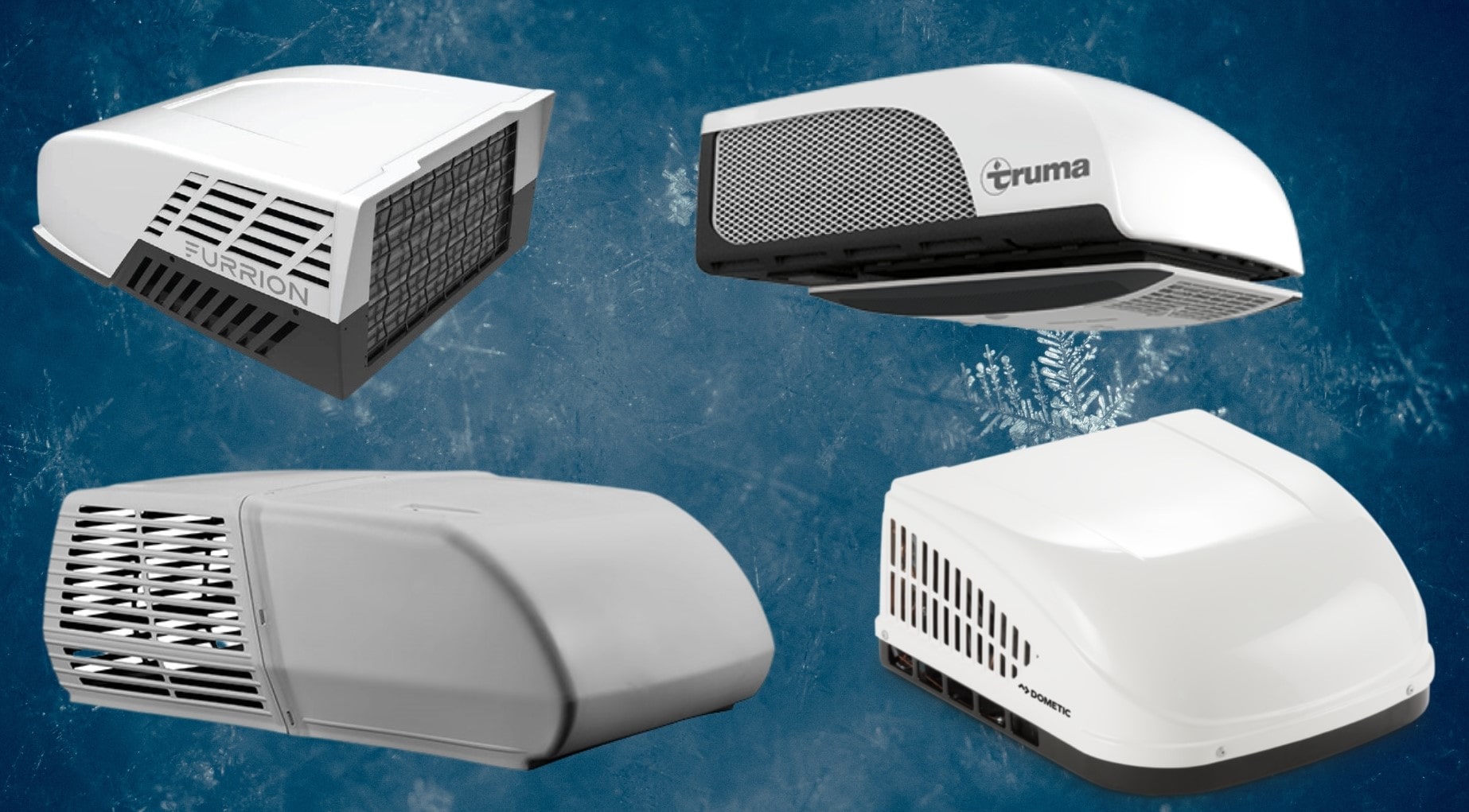

Home Maintenance
How Many Watts Does An RV Air Conditioner Need
Modified: August 23, 2024
Find out the required wattage for an RV air conditioner and ensure proper home maintenance. Keep your RV cool and comfortable on the road.
(Many of the links in this article redirect to a specific reviewed product. Your purchase of these products through affiliate links helps to generate commission for Storables.com, at no extra cost. Learn more)
Introduction
Welcome to the world of RVs, where the freedom of the open road meets the comfort of a home on wheels. Whether you’re a seasoned RVer or just starting out, one essential aspect of your RV that you should pay attention to is the air conditioner. Keeping cool during those hot summer days is crucial for a comfortable RV experience.
But have you ever wondered how much power an RV air conditioner needs? Understanding the power requirements of your RV air conditioner is important for planning your electrical needs and ensuring that you have the right setup to keep your RV cool and comfortable.
In this article, we will delve deeper into the world of RV air conditioners, exploring the different types, how they work, and the factors that affect their power requirements. We will also discuss how to calculate the wattage needed for your specific RV air conditioner, as well as tips for improving energy efficiency.
So, whether you’re a full-time RVer or planning a weekend getaway, sit back, relax, and let’s dive into the world of RV air conditioners and their power needs.
Key Takeaways:
- Keep your RV cool by understanding the power needs of your air conditioner. Consider factors like size, insulation, and ambient temperature to calculate the wattage required for a comfortable journey.
- Choose the right generator for your RV air conditioner to ensure reliable power supply. Implement energy-saving tips like regular maintenance, insulation, and ventilation to optimize cooling efficiency and reduce energy consumption.
Understanding RV Air Conditioners
Before we delve into the power requirements of RV air conditioners, it’s important to understand the different types available and how they work. Let’s explore these key aspects in more detail:
Types of RV Air Conditioners
There are two main types of RV air conditioners: rooftop air conditioners and portable air conditioners. Here’s a closer look at each:
- Rooftop Air Conditioners: These are the most common type of RV air conditioners. As the name suggests, they are installed on the roof of the RV. They typically consist of two main components: the compressor/condenser unit and the air handler unit. The compressor/condenser unit is located on the roof and is responsible for cooling the air. The air handler unit is mounted inside the RV, distributing the cool air throughout the space.
- Portable Air Conditioners: These are standalone units that can be placed anywhere inside the RV. They are connected to the outside of the RV through a vent for heat exhaust. Portable air conditioners are a good option for smaller RVs or for those who want the flexibility to move the unit to different areas of the RV.
How RV Air Conditioners Work
Understanding the basic operation of an RV air conditioner can help you grasp its power requirements. The process is similar to that of a regular air conditioner:
- The compressor/condenser unit compresses the refrigerant, raising its temperature.
- The hot refrigerant is then passed through coils where it releases heat and cools down.
- The cooled refrigerant is sent to the air handler unit.
- The air handler unit blows air over the cold coils, cooling the air.
- The cool air is then distributed throughout the RV.
It’s important to note that RV air conditioners require a source of power to run the compressor and fan motors, which is why understanding their power requirements is crucial for a properly functioning and comfortable RV air conditioning system.
Factors Affecting Power Requirements
Several factors come into play when determining the power requirements of an RV air conditioner. Understanding these factors will help you calculate how many watts your specific RV air conditioner needs. Let’s take a closer look at the key factors:
Size and BTU Rating
The size and BTU (British Thermal Units) rating of your RV air conditioner directly impact its power requirements. Generally, larger RVs or areas that need to be cooled will require air conditioners with higher BTU ratings. Higher BTU ratings typically correspond to higher power consumption. It’s important to choose an air conditioner that matches the size of your RV and your cooling needs to ensure optimal performance and energy efficiency.
Insulation and Air Leakage
The insulation and air leakage of your RV play a significant role in determining the power requirements of your air conditioner. Well-insulated RVs with minimal air leakage will require less power to cool compared to RVs with poor insulation and air leakage. Properly sealing any leaks and ensuring adequate insulation can help reduce the power needs of your air conditioner.
Ambient Temperature
The ambient temperature, or the temperature outside the RV, can affect the power requirements of your air conditioner. Hotter ambient temperatures will put a greater load on your air conditioner, requiring it to work harder and consume more power to maintain a comfortable temperature inside the RV. It’s important to consider the average temperatures of the locations you plan to travel to when calculating your air conditioner’s power needs.
Other Appliances and Electronics
It’s essential to consider the power requirements of other appliances and electronics in your RV that will be running simultaneously with the air conditioner. Items like refrigerators, televisions, microwaves, and charging devices will also draw power from your RV’s electrical system. Make sure to factor in their power consumption when determining the overall power requirements for your air conditioner.
By considering these factors and accurately assessing the power needs of your RV air conditioner, you can plan your electrical setup effectively and avoid any potential issues with insufficient power supply.
Read more: How Many Amps Does An RV Air Conditioner Use
Determining Power Needs for an RV Air Conditioner
Now that you have an understanding of the factors that affect the power requirements of an RV air conditioner, let’s explore how you can determine the specific wattage needs for your setup:
Calculating Wattage Requirements
To calculate the wattage requirements for your RV air conditioner, you need to determine the running watts and the starting watts. The running watts indicate the power consumed by the air conditioner while it’s running, and the starting watts represent the additional power required during the startup phase.
You can typically find the running watts and starting watts specifications in the user manual or on the air conditioner’s label. If this information is not available, you can contact the manufacturer or check their website for the specifications specific to your model.
Once you have the running watts and starting watts, you can add them to get the total wattage needed for your RV air conditioner.
Considerations for Generator or Shore Power
If you plan to run your RV air conditioner using a generator or shore power, it’s crucial to ensure that the power source can handle the wattage requirements. Generators come in various capacities, so you’ll need to select one that provides enough power to handle the air conditioner’s wattage, taking into account any other appliances or electronics that will be running simultaneously.
Similarly, when connecting to shore power, ensure that the campground or RV park provides the necessary electrical hookup to handle the wattage requirements of your air conditioner.
Solar Power Options
For those who prefer a more sustainable and off-grid option, solar power can be a viable solution for running an RV air conditioner. However, it’s important to note that air conditioners are power-hungry appliances, and running them solely on solar power can be challenging and expensive.
To utilize solar power for your RV air conditioner, you’ll need a robust solar power system with sufficient solar panels, battery capacity, and an inverter capable of handling the air conditioner’s wattage requirements. It’s recommended to consult with a solar power expert to ensure that your system is properly sized for your needs and geographic location.
By accurately determining the power needs for your RV air conditioner and considering the available power sources, you can ensure a reliable and efficient cooling system for your RV.
Choosing the Right Generator for an RV Air Conditioner
When it comes to running an RV air conditioner, having the right generator is essential. Let’s explore the different generator types, their capacities, and how to size a generator for your RV air conditioner:
Generator Types and Capacities
There are two main types of generators commonly used for RVs: portable generators and built-in generators.
- Portable Generators: These generators are versatile and can be used for various applications. They are typically fueled by gasoline, propane, or diesel. Portable generators come in different sizes and capacities, and their power output is measured in watts. When choosing a portable generator, consider its wattage capacity to ensure it can handle the power requirements of your RV air conditioner.
- Built-in Generators: Also known as onboard generators, these generators are permanently installed in the RV. They are usually fueled by gasoline or propane and can provide higher power capacities compared to portable generators. Built-in generators are specifically designed to power the various electrical systems in an RV, including the air conditioner.
Sizing a Generator for an RV Air Conditioner
To determine the right generator size for your RV air conditioner, you need to consider the starting wattage and running wattage of the air conditioner, as well as any other devices that will be running simultaneously.
The starting wattage is crucial because air conditioners require a higher surge of power during startup. A generator with adequate starting wattage capacity will ensure a smooth and efficient operation of the air conditioner.
When sizing a generator, it’s recommended to choose one with a capacity that is at least 20% higher than the total wattage requirements of your air conditioner and other devices. This provides a safety margin and allows the generator to handle any additional power demands that may arise.
Additionally, consider the noise level, fuel efficiency, and portability of the generator. Noise reduction features can significantly enhance your camping experience, and fuel efficiency helps minimize fuel consumption and costs. Portability is crucial if you plan to transport the generator or use it for other purposes.
Consulting with an RV expert or a generator specialist can help you select the right generator for your specific RV and air conditioning needs. They can assist you in determining the appropriate generator size and provide valuable recommendations based on your unique requirements.
By choosing the right generator for your RV air conditioner, you can ensure reliable and efficient power supply during your RV adventures.
Energy Efficiency Tips for RV Air Conditioning
Keeping your RV air conditioning system operating efficiently not only helps to reduce your energy consumption but also extends the life of your unit. Here are some energy-saving tips to optimize the performance of your RV air conditioner:
Read more: How Many BTUs Is My RV Air Conditioner
Maintenance and Cleaning
Regular maintenance and cleaning of your RV air conditioning system are essential to ensure its optimal efficiency. Here are a few maintenance tips:
- Clean or replace the air filters regularly. Clogged or dirty filters restrict airflow, causing the air conditioner to work harder and consume more energy.
- Check and clean the evaporator and condenser coils. Over time, these coils can accumulate dirt and debris, affecting their heat transfer efficiency. Keeping them clean improves cooling performance and reduces energy consumption.
- Inspect and clean the condensate drain line to prevent clogs and water leaks. A blocked drain line can disrupt the unit’s functionality and lead to energy wastage.
Insulation and Sealant
Proper insulation and sealing of your RV play a vital role in reducing unwanted heat transfer and air leakage, which can strain your air conditioner and increase energy usage. Here’s what you can do:
- Insulate your RV windows using reflective window covers or thermal curtains to block out heat from the sun.
- Seal any gaps or cracks around windows, doors, vents, and electrical connections using weatherstripping or caulk. This helps to prevent cool air from escaping and hot air from entering your RV.
- Consider adding insulation to the roof, walls, and floors of your RV to improve its overall energy efficiency. Consult an expert to determine the appropriate insulation materials and methods for your RV model.
Shade and Ventilation Options
Making use of shade and proper ventilation can significantly reduce the cooling load on your RV air conditioner. Here are some tips:
- Park your RV in shady areas whenever possible. This reduces direct exposure to the sun and helps keep the interior cooler, reducing the strain on your air conditioner.
- Use external window shades or awnings to block out direct sunlight. This helps to keep the temperature inside your RV lower, reducing the workload on your air conditioner.
- Utilize roof vents or install vent fans to promote airflow and improve ventilation inside your RV. This helps to expel hot air and bring in fresh air, providing natural cooling and reducing reliance on your air conditioner.
Implementing these energy efficiency tips not only helps to reduce your RV air conditioning’s power consumption but also enhances your overall comfort during your RV adventures. Remember to regularly assess and maintain your RV’s cooling system to ensure it continues to perform at its best.
Conclusion
Having a properly functioning and efficient air conditioning system in your RV is crucial for a comfortable and enjoyable travel experience. Understanding the power requirements of your RV air conditioner allows you to plan your electrical needs and choose the right setup to keep your RV cool on the road. By considering factors such as size, insulation, ambient temperature, and other appliances, you can accurately determine the wattage requirements for your air conditioner.
Choosing the right generator for your RV air conditioner is essential if you plan to rely on generator or shore power. Portable generators and built-in generators offer different capacities and fuel options, so it’s important to select one that meets your power needs. Additionally, exploring solar power options can provide alternative and sustainable ways to keep your RV cool, although it may require a robust solar power system to handle the air conditioner’s high power consumption.
Implementing energy efficiency tips for your RV air conditioning system can further optimize its performance and reduce energy consumption. Regular maintenance and cleaning of filters, coils, and drain lines ensure optimal airflow and cooling efficiency. Proper insulation and sealing techniques prevent heat transfer and air leakage, reducing strain on the air conditioner. Utilizing shade, ventilation options, and maximizing natural airflow can also help ease the load on the air conditioner.
In conclusion, understanding the power needs of your RV air conditioner and taking steps to maximize energy efficiency are essential for a comfortable and cost-effective RV journey. By considering the factors influencing power requirements, choosing the right generator or power source, and implementing energy-saving practices, you can create a cool and inviting living space inside your RV while minimizing your environmental impact and saving on energy costs.
So, get ready to hit the road with confidence, knowing that you have the knowledge and tools to keep your RV cool and comfortable, no matter where your adventures take you.
Frequently Asked Questions about How Many Watts Does An RV Air Conditioner Need
Was this page helpful?
At Storables.com, we guarantee accurate and reliable information. Our content, validated by Expert Board Contributors, is crafted following stringent Editorial Policies. We're committed to providing you with well-researched, expert-backed insights for all your informational needs.

